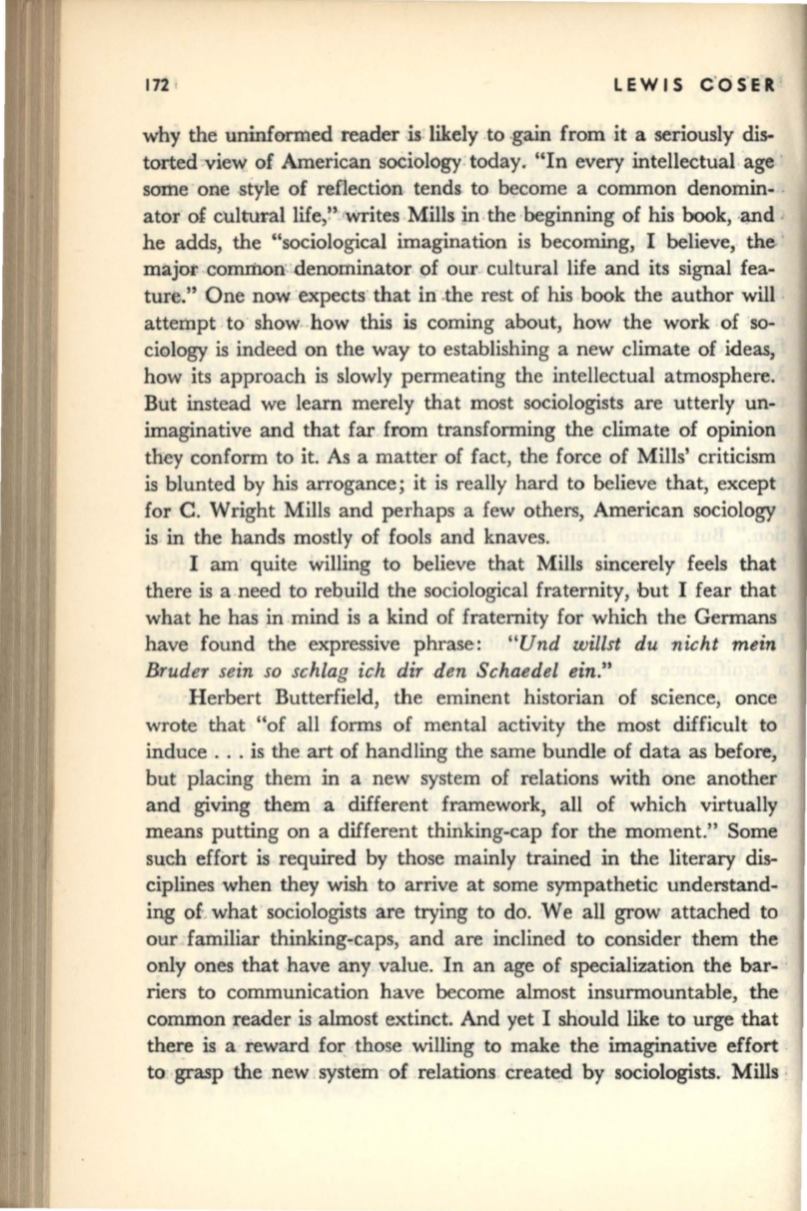
LEWIS
C'OS"ER
why the uninformed reader is likely to .gain from it a seriously
dis–
torted :view of American sociology.today. "In every intellectual age
sOItle one -style of reflection. tends to become a common denomin–
ator of cultural life," 'writes Mills jn .thebeginning of his book,lI.Ild
he adds, the "sociological imagination is becoming, I believe, the
major common':denorninator of our. cultural life and its signal fea–
ture." One now 'expects' that in .the rest of his book the author will
attempt .to show.· how this is coming about, how the work .of so–
ciology is indeed on the way to establishing a new climate of ideas,
how its approach is slowly permeating the intellectual atmosphere.
But instead we learn merely that most sociologists are utterly un–
imaginative and that far from transforming the climate of opinion
they conform to it.
As
a matter of fact, the force of Mills' criticism
is blunted by his arrogance; it is really hard to believe that, except
for C. Wright Mills and perhaps a few others, American sociology
is in the hands mostly of fools and knaves.
I am quite willing to believe that Mills sincerely feels that
there is a .need to rebuild the sociological fraternity, but I fear that
what he has in mind is a kind of fraternity for which the Germans
have found the expressive phrase:
"Und willst du nicht mein
Bruder sein so schlag ic.h dir den Schaedel ein."
Herbert Butterfield, the eminent historian of science, once
wrote that "of all forms of mental activity the most difficult to
induce ... is the art of handling the same bundle of data as before,
but placing them in a new system of relations with one another
and giving them .a different framework, all of which virtually
means putting on a different thinking-cap for the moment." Some
such effort is required by those mainly trained in the literary
dis–
ciplines when they wish to arrive at some sympathetic understand–
ing of. what ·sociologists are trying to do. We all grow attached to
our familiar thinking-caps, and are inclined to consider them the
only ones that have any value. In an age of specialization the bar–
riers to communication have become almost insurmountable, the
common reader is almost extinct. And yet I should like to urge that
there is a reward for those willing to make the imaginative effort
to grasp the new .system of .relations created by sociologists. Mills ·


